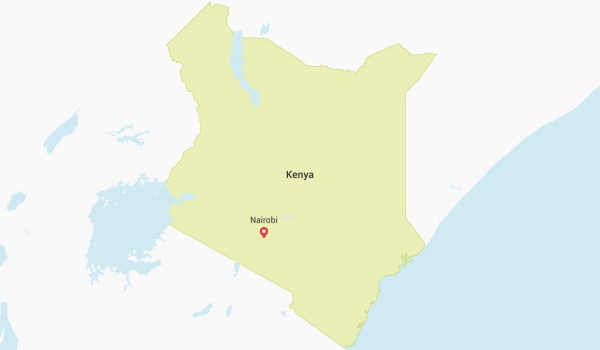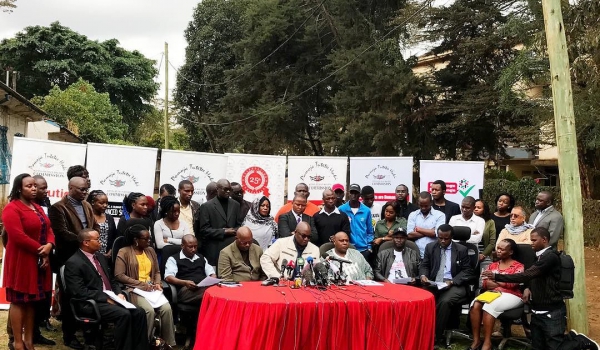Prosecution withdraws charges due to lack of evidence, alleges witness-tampering
In December 2014, the ICC prosecutor withdrew the charges against Kenyatta after several delays to the start of trial. While the evidence available to the prosecution was sufficient to confirm charges, the ICC prosecutor concluded it was inadequate for securing a conviction at trial. Several prosecution witnesses were reportedly killed, disappeared or withdrew from the case, or recanted their testimony. The defense, meanwhile, argued the witnesses were coached and given financial incentives to testify.
The prosecution further claimed the Kenyan government was non-cooperative in providing potentially key evidence it had requested (see below for more on cooperation). Trial Chamber V(b) upheld the prosecution’s decision to withdraw charges, citing the right of the accused to a fair and expeditious trial.
ICC judges reject challenges to admissibility and jurisdiction of case
In March 2011, Kenya challenged the admissibility of the ICC case against Kenyatta (and Muthaura and Ali). It claimed that the country was undergoing a comprehensive legal and judicial reform and intended to investigate and prosecute the cases domestically. In rejecting the challenge, PTC-II found there were no such ongoing domestic proceedings with respect to the three ICC suspects. The Appeals Chamber confirmed this decision in August 2011.
PTC-II also rejected a challenge to the Court’s jurisdiction over the case by the defense for Kenyatta and Ali, dismissing the argument that the level of organization and structure within which the crimes were allegedly committed did not reach the requisite level for crimes against humanity under the Rome Statute.
Judges decide Kenyatta must be present at trial as ASP adopts rule change on heads-of-state
On 26 November 2013, a majority of Trial Chamber V(b) ruled that as a general rule Kenyatta must be present at trial, and that requests for excusal would be considered on a case-by-case basis.
The ruling reconsidered the Trial Chamber’s own decision from October 2013, which excused Kenyatta from continuous presence at trial to allow him to perform his duties as president of Kenya. The prosecution had asked the Chamber to reconsider the excusal after the Appeals Chamber had decided, in the context of the Ruto/Sang case, that absence from trial is only permissible under exceptional circumstances.
The Trial Chamber’s ruling came in the middle of the 12th session of the ICC’s governing body - the Assembly of States Parties (ASP) – during which states adopted a Kenyan proposal to change the Court’s rules to allow those mandated to fulfil "extraordinary public duties at the highest national level" to request excusal from presence at trial.
In October 2013, Trial Chamber V(b) rejected Kenyatta’s requests for authorization to participate at trial via video link.
Civil society defends ICC independence and no immunity under Rome Statute
While the Rome Statute provisions excluding immunity based on official capacity remained untouched during the 12th ASP session, civil society expressed grave concern at the political campaign that led to the new rules on the appearance of sitting heads-of-state at trial, noting it risked undermining the ICC’s independence. In the run-up to 13th ASP, civil society also strongly opposed a proposal by the Kenyan government to amend the Rome Statute to allow immunity for heads-of-state and high government officials.
Read more on Kenya’s anti-ICC campaign - See Kenya country page
Judges decide hearings to take place in The Hague
On 15 July 2013, in the context of the Ruto/Sang trial, the plenary of ICC judges rejected a joint defense request to hold the trial in Kenya or Tanzania. For such a move to be adopted, at least two-thirds of the 18 judges needed to vote in favor of it. The judges stated that they took into consideration the security and cost of holding proceedings outside The Hague, the potential impact on victims and witnesses, as well as the potential impact on the perception of the Court—all factors that would hypothetically apply in the Kenyatta case had the question arisen.
Cooperation: Prosecutor seeks ASP finding of non-compliance against Kenya
In 2014, the prosecutor and Kenyan government sparred over requests to access Kenyatta’s personal records that the prosecution considered vital to proceeding to trial. The prosecution subsequently requested a finding of non-cooperation against the Kenyan government, alleging that it was withholding key evidence. In December 2014, despite finding that Kenya’s cooperation had not met the standard of good faith cooperation required from states parties under the Rome Statute, trial judges rejected the request and referral of the matter to the ASP. The Appeals Chamber reversed the decision in August 2015, referring the matter of Kenya’s cooperation back to the Trial Chamber.




